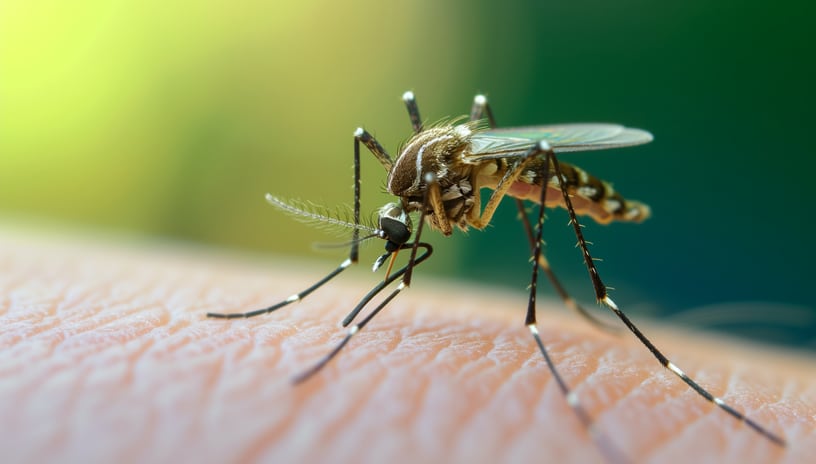West Nile Virus: Health Concerns and Prevention Tips

The first case of West Nile virus in Illinois has been confirmed, so act now to reduce your risk.
The Centers for Disease Control and Prevention (CDC) recently confirmed Illinois’ first human case of West Nile virus (WNV) in 2025. An individual from Southern Illinois was hospitalized due to complications of the infection.
This case underscores the importance of avoiding mosquito bites. WNV can pose elevated health risks for individuals with weakened immune systems and those over 65.
According to the Illinois Department of Public Health (IDPH), WNV has already been confirmed in 19 counties, including Clinton and Christian in Central Illinois.
The Moultrie County Health Department (MCHD) urges area residents to prevent mosquito bites and reduce their risk of West Nile virus (WNV).
What Is West Nile Virus?
WNV is the leading cause of mosquito-borne illness in the continental United States. WNV is spread to humans, livestock (primarily horses), pets, and other animals through the bite of an infected mosquito.
About one in 150 people who contract the disease develop a severe illness that can affect the brain, spinal cord, nerves, and even cause paralysis.
Recognizing the Symptoms
Most people infected with WNV (around 80%) will show no symptoms. However, the remaining 20% may develop signs of illness within 3 to 14 days after being bitten.
Mild symptoms of WNV may include:
- Fever
- Headache
- Nausea
- Body aches
- Fatigue
Severe symptoms of WNV infection can include:
- High fever
- Neck stiffness
- Disorientation or confusion
- Tremors or convulsions
- Paralysis
- Meningitis or encephalitis (inflammation of the brain and spinal cord)
Seek medical care if you develop any of these symptoms after a mosquito bite.
Prevention: Follow the “Three R’s”
The most effective way to protect yourself and your family is to “Fight the Bite” by practicing the “Three R’s”: Reduce, Repel, and Report.
#1. REDUCE: Eliminate Mosquito Breeding Grounds
Mosquitoes need standing water to lay eggs. To prevent mosquitoes in and around your home:
- Empty and scrub items that collect water (such as bird baths, toys, buckets, and flower pot saucers) weekly.
- Cover water storage containers tightly.
- Repair or replace torn screens on windows and doors.
- Use larvicides in ornamental ponds or containers that cannot be emptied.
#2. REPEL: Protect Yourself Outdoors
Prevent mosquito bites by limiting outdoor activity during peak mosquito hours—typically at dawn and dusk. Additionally:
- Use EPA-registered insect repellents containing DEET, picaridin, oil of lemon eucalyptus, or other recommended ingredients.
- Wear light-colored, long-sleeved shirts and long pants.
- Dress children appropriately and consult a physician before using repellents on infants.
#3. REPORT: Notify Authorities About Standing Water
Notify local authorities of any areas with standing water that have been present for more than a week. These areas are conducive to mosquito breeding and may include roadside ditches, unused pools, or flooded areas. Your local health department or other authorized officials may be able to remedy or treat these areas with larvicide.
Stay Informed and Stay Protected
The Illinois Department of Public Health (IDPH) actively monitors and reports West Nile virus (WNV) activity throughout Illinois.
To learn more about WNV symptoms, prevention, and local community control programs, contact the Moultrie County Health Department at (217) 728-4114 or visit www.moultriehealth.org.
This summer, take the time to reduce your exposure to mosquitoes. A few simple actions now can help protect your health and your community through the warm summer months ahead.

